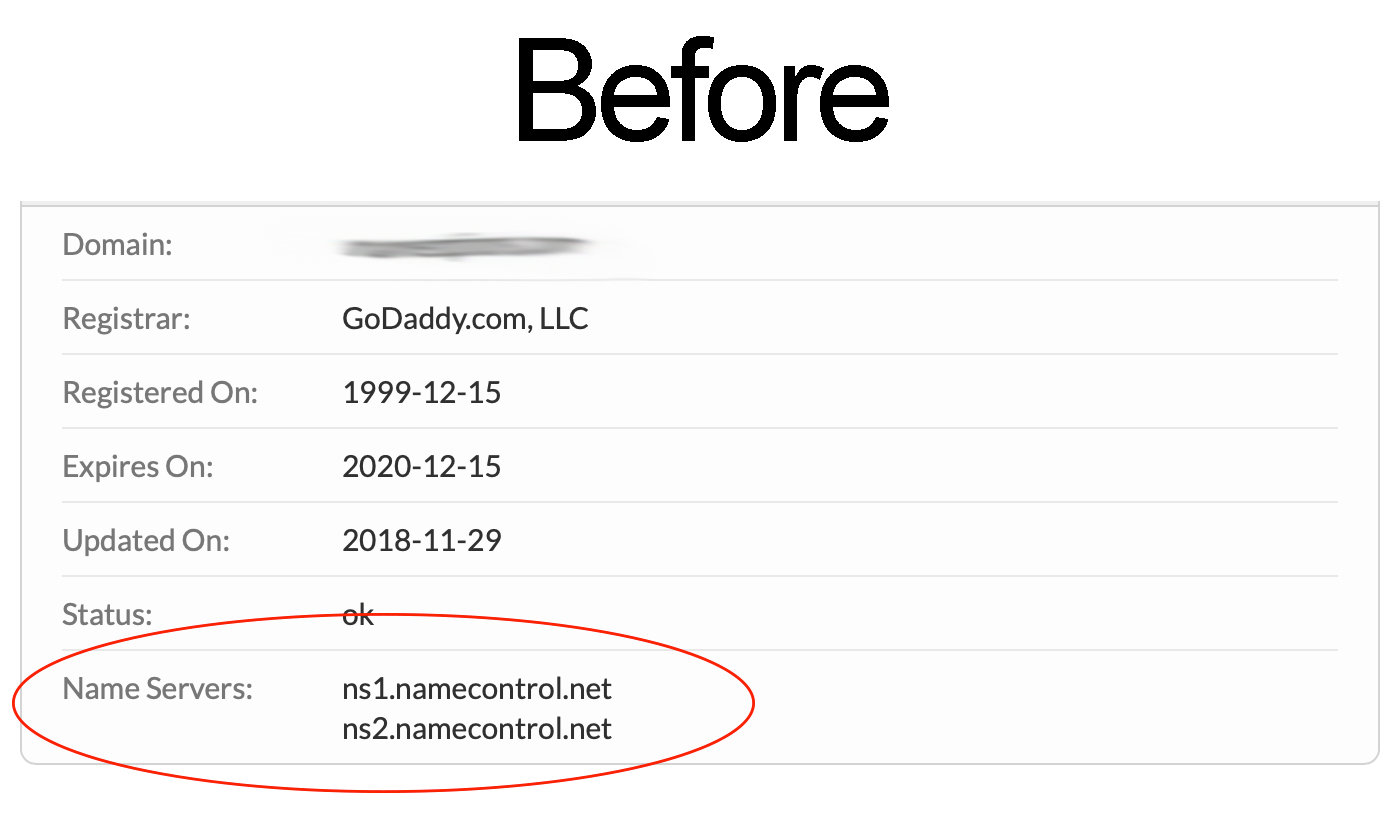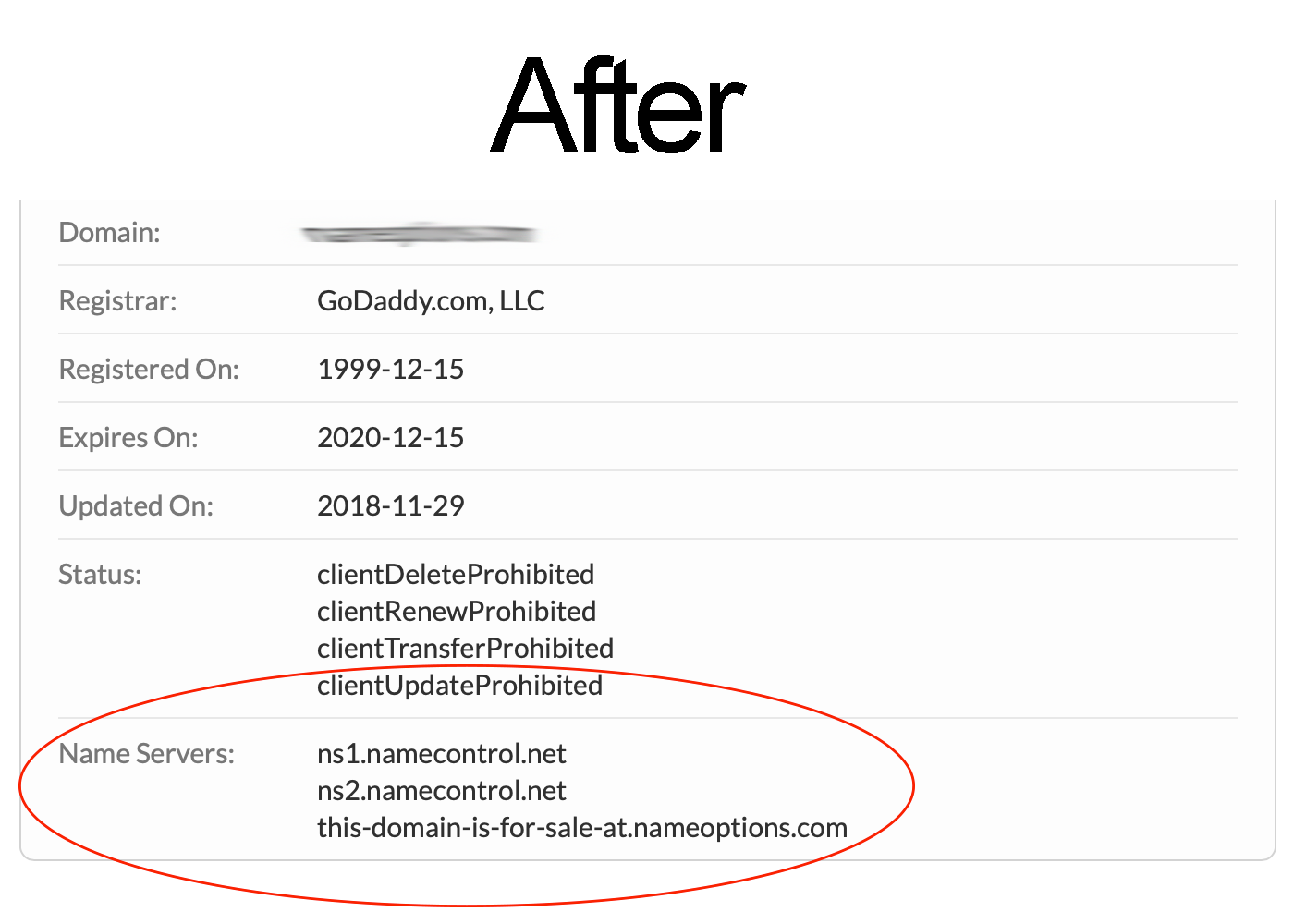
Prior to the introduction and implementation of GDPR (General Data Protection Regulation), Whois was commonly used to find owners of domains with an easy way to contact them via email or phone. This was very helpful to getting direct sales from interested end-users and investors, and thus avoid expensive commission fees. GDPR forced registrars to redact all personal information of owners from the Whois results including email and phone number which left the data extremely limited. So what is a domainer left to do? Buyers can no longer find them through Whois in the traditional way as before using these contact methods. However there is one piece of data that is still visible in Whois query results:
Nameservers
Nameservers is the only data visible in each Whois query that can be used to point the buyer to the seller if it is used correctly. In majority of cases the nameservers are from a hosting service, mainstream marketplace, parking service or registrar.
Most registrars allow you to create custom nameservers with any of your domains. So if you operate your own hosted marketplace, you can use that service to create a custom nameserver for the main domain such as this:
this-domain-is-for-sale-at.yourmarketplacedomain.com
This will tell the potential buyer that the domain is for sale and where to go online (the marketplace) to contact the owner directly.
If the domain already has nameservers listed, then just one custom one will suffice. You can add it to each domain for sale. Example:


It can be a little daunting and too technical for many domainers to create a custom nameserver and add to the hosting server’s DNS. If you have a marketplace powered by Domain Market Pro then please feel free to contact us and we will help you with this. Just contact us by opening a support ticket in your control panel.
GDPR certainly has made Whois extremely limited in finding the owner of a domain but not impossible. The above nameserver method can be very effective to this end. We have written more about how GDPR can effect domain sales and solutions on this blog.


